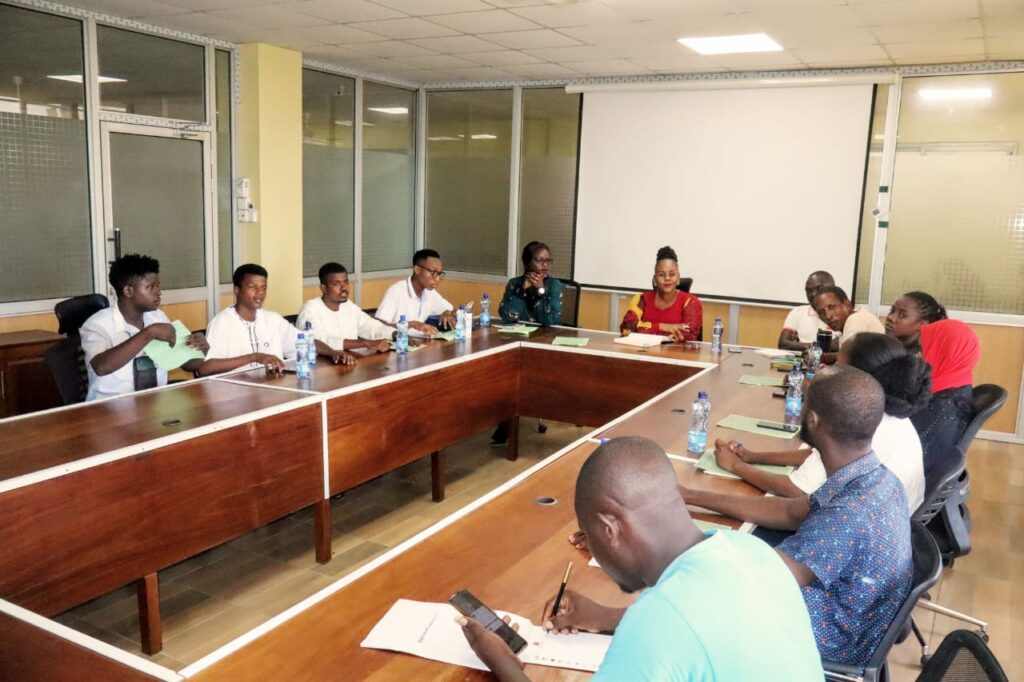By Morris Mwaringa
In a recent gathering of youth leaders in Kilifi County, the air was charged with enthusiasm and determination as they convened to discuss pressing issues affecting their community.
The meeting, hosted by the deputy county governor, her Excellence Florence Mbetsa Chibule in her office, delved into the pivotal role of youths in driving various aspects of societal progress, ranging from environmental conservation to fostering inter-religious dialogue and harnessing the potential of the blue economy.
”During our discussion we focused on creating collaborative partnerships to support youth involvement in environmental management and the blue economy sector,” the deputy governor said.
One of the focal points of the discussion was the imperative need to engage youths in environmental protection efforts.
Recognizing the profound impact of climate change on their surroundings, the deputy governor emphasized the significance of mobilizing young people as stewards of the environment.
From advocating for sustainable practices to actively participating in conservation initiatives, youths were urged to take ownership of safeguarding Kilifi County’s natural resources for future generations.
Moreover, the dialogue extended to the promotion of inter-religious harmony within the community.
In a region characterized by diverse religious beliefs, fostering mutual understanding and respect among different faiths is essential for fostering social cohesion.
The youths acknowledged their pivotal role in bridging religious divides and championing tolerance and cooperation to cultivate a more inclusive society.
“We have had multiple sessions over the years on managing religious radicalization and many youths have the teachings on how to deal with and resist manipulative teachings,” Juliet Pola, a youth’s leader from the Kenya Muslim Youths Association (KMYA) told Coast Times Digital in an interview.
Another key area of focus was the blue economy, which presents vast opportunities for economic growth and sustainable development along coastal regions like Kilifi County.
Through innovative approaches and entrepreneurial ventures, young people can drive transformative change in sectors such as fisheries, tourism, and maritime transport.
By harnessing the potential of the blue economy, youths can not only create livelihood opportunities for themselves but also contribute to the overall prosperity of their community.
Most youths in the county shun agriculture and are not proactive in its diverse economic opportunities.
This, according to Juliet Pola, has led many young people in to poverty which make them vulnerable to exploitation and other undesirable circumstances.
“We, the youths have to get serious and make use of our available resources. We should not be choosey in terms of work. If there is money in agriculture, then we have to put our land into good use,” she posed while urging economic development policy makers to always prioritize empowering the young people first.
At the heart of the discussion was the resounding call for cooperation and partnerships among stakeholders to ensure that youths are actively involved in the socio-economic development of Kilifi County.
The youths expressed their eagerness to be at the forefront of change, emphasizing the need for collaboration between government agencies, civil society organizations, and private sector entities to provide them with the necessary support and resources.
In essence, the meeting served as a rallying cry for youth empowerment and engagement in Kilifi County.
By harnessing their energy, creativity, and passion, young people have the potential to catalyze positive change across various sectors, from environmental sustainability to socio-economic development.
As they stand poised to take on leadership roles and drive innovation, the future of Kilifi County shines bright with promise, fueled by the collective efforts of its vibrant youth population.


